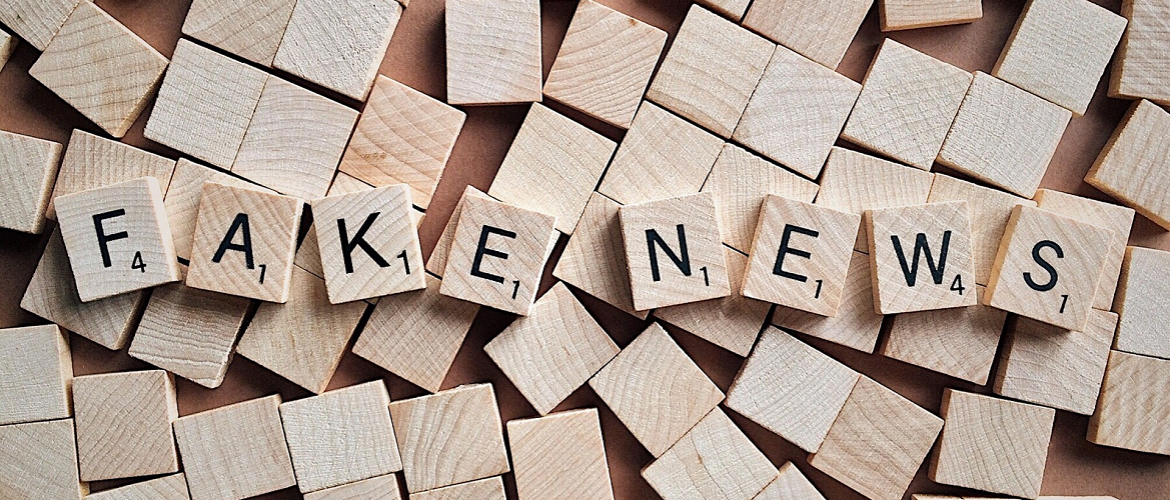The world’s largest democratic exercise is threatened by the presence of fake news which has infiltrated virtually all levels of social media seamlessly. What can the nation do to counter this menace?
Background
Social media are interactive computer-mediated technologies that facilitate the creation and sharing of information, ideas, career interests and other forms of expression via virtual communities and networks.
Users usually access social media services via web-based technologies on desktops and laptops, or download services that offer social media functionality to their mobile devices (e.g., smartphones and tablets). As users engage with these electronic services, they create highly interactive platforms through which individuals, communities, and organizations can share, co-create, discuss, and modify user-generated content or pre-made content posted online.
Fake news, also known as junk news or pseudo-news, is a type of yellow journalism or propaganda that consists of deliberate disinformation or hoaxes spread via traditional news media (print and broadcast) or online social media. The false information is often caused by reporters paying sources for stories, an unethical practice called checkbook journalism. Digital news has brought back and increased the usage of fake news, or yellow journalism. The news is then often reverberated as misinformation in social media but occasionally finds its way to the mainstream media as well.
Fake news is written and published usually with the intent to mislead in order to damage an agency, entity, or person, and/or gain financially or politically, often using sensationalist, dishonest, or outright fabricated headlines to increase readership. Similarly, clickbait stories and headlines earn advertising revenue from this activity.
WhatsApp most used
The rampant misuse of social media platforms to spread fake news has been a global cause for concern, and now researchers are conducting a study in India to find out how misinformation shared through WhatsApp messages is influencing the voters in the country. The BBC has termed WhatsApp as the “black hole of fake news”, saying “WhatsApp, India's most popular messaging platform, has become a vehicle for misinformation and propaganda ahead of the upcoming election. The Facebook-owned app has announced new measures to fight this but experts say the scale of the problem is overwhelming.”
India poses a particularly complex problem for Facebook. It is WhatsApp's largest market - more than 200 million Indians use the app - and a place where users forward more content than anywhere else in the world.
The fact that up to 256 people can be part of a group chat makes it incredibly popular with extended families and large groups of friends. While much of these daily conversations involve people making plans, sharing jokes and catching up - political messages and videos are also shared widely.
BBC research last year found that a rising tide of nationalism was driving Indians to share fake news. Participants tended to assume that WhatsApp messages from family and friends could be trusted and sent on without any checks.
Government (in) action?
In the lead-up to the elections, the Indian government summoned the top executives of Facebook and Twitter to discuss the crisis of coordinated misinformation, fake news and political bias on their platforms. In March, Joel Kaplan, Facebook’s global vice president for public policy, was called to appear before a committee of 31 members of the Indian Parliament — who were mostly from the ruling Bharatiya Janata Party — to discuss “safeguarding citizens’ rights on social/online news media platforms.”
The hearing was an exercise in absurdist theatre because content that reaches millions of people because of the way social media algorithms, especially Facebook, amplify “engaging” or inflammatory articles.
As elsewhere in the world, Facebook, Twitter, and YouTube are unsure about tackling the problem head-on for the fear of making decisions that invoke the wrath of national political forces. The tightrope walk was evident when in April 2019, Facebook announced a ban on about 1,000 fake news pages targeting India. They included pages directly associated with political parties.
Assessment
Our assessment is that the Election commission must frame an exclusive, strict Model Code of Conduct for all Social Media platforms before the next scheduled General Elections in 2024. We believe that Social Media is a strong agent of change, but we also feel that it should not be used to push a certain party’s electoral agenda at the cost of the country’s law and order. We also, feel that the 2019 Elections will be the first General Election in India history to showcase a credible influence of social media over voting patterns and public discourse.

